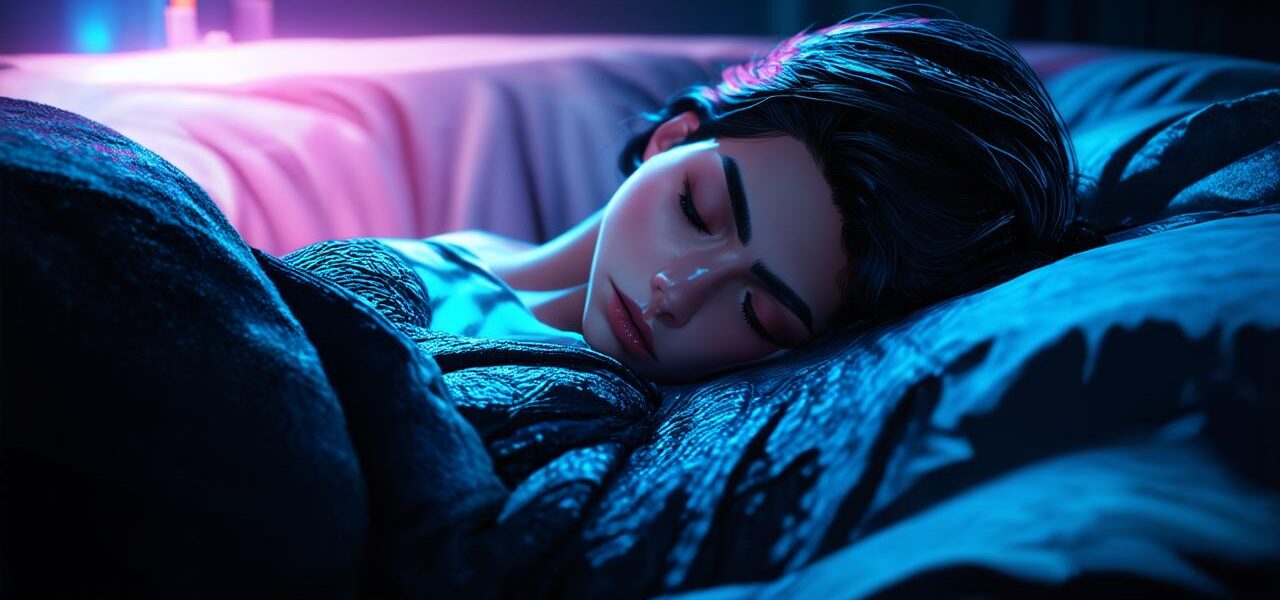As video games have grown in popularity over the years, it’s no surprise that more and more people are spending their waking hours gaming. However, what happens when these individuals finally lay down to sleep? Does their brain activity change? Do they experience altered states of consciousness? This article will delve into the world of sleep and gaming, exploring the impact of video games on sleep patterns and the potential consequences that may arise.
Understanding Sleep Cycles and Their Impact on Gaming
Before diving into the specific effects of video games on sleep, it’s important to understand the basics of sleep cycles. Humans go through four stages of sleep, each with its own unique characteristics and functions: stage 1, stage 2, stage 3, and REM (rapid eye movement) sleep.
Stage 1 is the lightest stage of sleep, during which individuals begin to relax and their brain waves start to slow down. This stage is important for transitioning into deeper stages of sleep, but it’s also where we are most vulnerable to being woken up by external stimuli.
Stage 2 is characterized by a further slowdown in brain wave activity and an increase in body temperature. This stage is crucial for regulating our circadian rhythms and preparing the body for deep sleep.
Stage 3, also known as deep sleep or slow-wave sleep, is where the most restorative aspects of sleep occur. During this stage, the brain produces delta waves, which help to repair and regenerate tissues throughout the body. Deep sleep is also important for memory consolidation and learning.
REM sleep is the final stage of sleep, during which rapid eye movement occurs and vivid dreams can take place. This stage is essential for emotional regulation, mood regulation, and cognitive functioning.
The impact of gaming on sleep cycles varies depending on the individual’s habits and preferences. Some people may find that gaming before bedtime helps them to relax and fall asleep more easily, while others may experience increased arousal and difficulty sleeping as a result.
Sleep Quality and Video Game Use: A Case Study
One study conducted by researchers at the University of California, Irvine, investigated the relationship between sleep quality and video game use in young adults. The participants were asked to wear a sleep tracker for one week while also completing a questionnaire about their gaming habits.
The results showed that individuals who reported spending more time playing video games had lower sleep quality than those who spent less time gaming. Specifically, the study found that gamers who slept for less than seven hours per night were more likely to experience poorer sleep quality and daytime fatigue.
The Science Behind Video Game Addiction and Sleep Disruption
Video game addiction is a growing concern among both researchers and healthcare professionals. Studies have shown that video games can be highly addictive, with individuals spending hours playing and neglecting other aspects of their lives, including sleep.
One theory behind video game addiction is the concept of intermittent reinforcement, which refers to the use of variable rewards and punishments to maintain behavior. In the case of video games, this might involve receiving a reward (such as a level-up or power-up) after completing a task, only to experience frustration or disappointment when a new challenge arises. This cycle of reinforcement can create a sense of urgency and compulsion to continue playing, even when it interferes with other important activities like sleep.
Additionally, video games often involve high levels of stimulation and reward, which can activate the brain’s reward centers and lead to feelings of pleasure and euphoria. This can be particularly problematic for individuals who are already prone to sleep disruption or those who struggle with emotional regulation.
The impact of video game addiction on sleep can be significant. Research has shown that individuals who are addicted to video games may experience insomnia, daytime fatigue, and other symptoms of poor sleep quality. In extreme cases, video game addiction can even lead to physical health problems, such as obesity and cardiovascular disease.
Real-Life Examples of the Impact of Video Games on Sleep
To further illustrate the impact of video games on sleep, let’s take a look at some real-life examples.
Case 1: John is a 25-year-old college student who spends most of his free time playing video games. He typically goes to bed around midnight and wakes up at six or seven in the morning, but he often feels tired and sluggish during the day. After speaking with a sleep specialist, John discovers that he is suffering from insomnia as a result of his excessive gaming habits. With guidance from the specialist, John begins to set aside dedicated time for sleep each night and gradually reduces his gaming time. Over time, he reports feeling more rested and alert during the day.
Case 2: Sarah is a 30-year-old stay-at-home mom who has always enjoyed playing video games in her free time. However, she recently began to experience difficulty falling asleep at night and feels constantly tired throughout the day. After consulting with a healthcare provider, Sarah learns that she may be experiencing sleep apnea, a common sleep disorder characterized by interrupted breathing during sleep. While treating her sleep apnea with a CPAP machine, Sarah also decides to limit her gaming time and prioritize sleep hygiene practices, such as establishing a regular bedtime routine and creating a relaxing sleep environment. Within a few weeks, Sarah reports feeling more rested and energized during the day.
Conclusion: The Importance of Sleep for Video Game Developers
In conclusion, it’s clear that video games can have both positive and negative effects on sleep patterns and overall well-being. While some individuals may find that gaming helps them to relax and fall asleep more easily, excessive use can lead to insomnia, daytime fatigue, and other symptoms of poor sleep quality.
For video game developers, understanding the impact of their products on sleep is crucial. By incorporating features that promote healthy sleep habits, such as limiting screen time before bed or providing soothing soundtracks, developers can help their users to maintain optimal physical and mental health. Additionally, by being mindful of their own sleep patterns and gaming habits, developers can set a positive example for their players and ensure that they are creating games that promote well-being in all aspects of life.
FAQs:
Can video games cause insomnia?
Yes, excessive use of video games can lead to insomnia and other sleep disorders.
How does the brain respond to video games?
The brain responds to video games by releasing dopamine, a neurotransmitter associated with pleasure and reward. This can activate the brain’s reward centers and create a sense of urgency and compulsion to continue playing.
What are some strategies for promoting healthy sleep habits while gaming?
Incorporating features that limit screen time before bed or provide soothing soundtracks, as well as setting aside dedicated time for sleep each night, can help promote healthy sleep habits while gaming.





